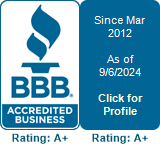Audit Strategies & Tactics
You need to explore tactics before you talk to the IRS. The IRS examines returns to determine the accuracy of your income and deductions. However, an audit is more than just an examination of your accounting books. It is an investigation of YOU!
The IRS will often want to examine your bank accounts and your lifestyle. They usually request a lot more information from you than is necessary to determine income. But, they are looking for any suspicious transactions or activity for their purposes as well as for other governmental agencies with whom they are connected.
Income Items
The first thing the IRS looks at are all the documents given to them by your employer, banks, mortgage lenders, etc. (More) They accept as true all documents given to them. If there is an error, YOU must have it corrected - the IRS will not reverse it.
Next, the IRS looks at your bank statements. They add up all the deposits and declare them to be income. YOU must prove which deposits are not income. There is a special section in our Audit Defense program devoted to "Proving Deposits are Not Income".
Finally, the IRS looks at your expenditures and your "lifestyle" to impute income to you. They add up all your expenditures and declare them to be income unless YOU can show you had money from other means, such as savings, friends&family; or loans.
Deductions
The first item usually reviewed by the IRS is your mileage log. You are required to keep one, but not many people do. Therefore, the IRS looks for that first. If you have one, they are more generous; if you don't have one, they start digging for more errors.
Next, they will look for contract labor you hired. If you issued 1099MISC forms, they are more forgiving. If you did not, they will require much more proof of the validity of the expense. They will look at your payments, your contracts, the industry standard, and how the workers filed their returns. Plus, the IRS could allege that you misclassified the subcontractors and they should be employees. That is a major problem!!
Finally, the IRS will thoroughly go through every expense deduction. You must match the payments with the invoices in chronological order or risk the IRS tacking on a "negligent record keeping" or "accuracy-related" penalty. The invoices alone won't work because that doesn't show payment. The payments alone won't work because that doesn't show business purpose. Your testimony of business purpose is not as persuasive as contemporaneous notes on the billings.
So, you must have all the payments with all the billings, in chronological order. Don't make the IRS agent look through a pile of bills!! It's irritating, shows poor record keeping and leads to further investigation of you.
Pursue your case
All of these issues & more are explored in depth in our Audit Defense program. TaxHelp has a Guide to Self-Representation in an IRS Audit, along with more information in the "Vital Links & Resources" tab on TaxHelpLaw.com. But, we recommend having a tax attorney zealously represent you because they can prove your case without compromising your privacy.
Often, people want to use their return preparer or CPA for audits. In letter audits, that is fine. But for office and field audits, it's dangerous because of the familiarity of the CPA to you & the case and their lack of knowledge of IRS procedure and powers. They can't be independent and advocate for you. Nor can they use the Courts, which is often a cheaper way to fight the IRS!!
J. David Hopkins, JD, LLM






